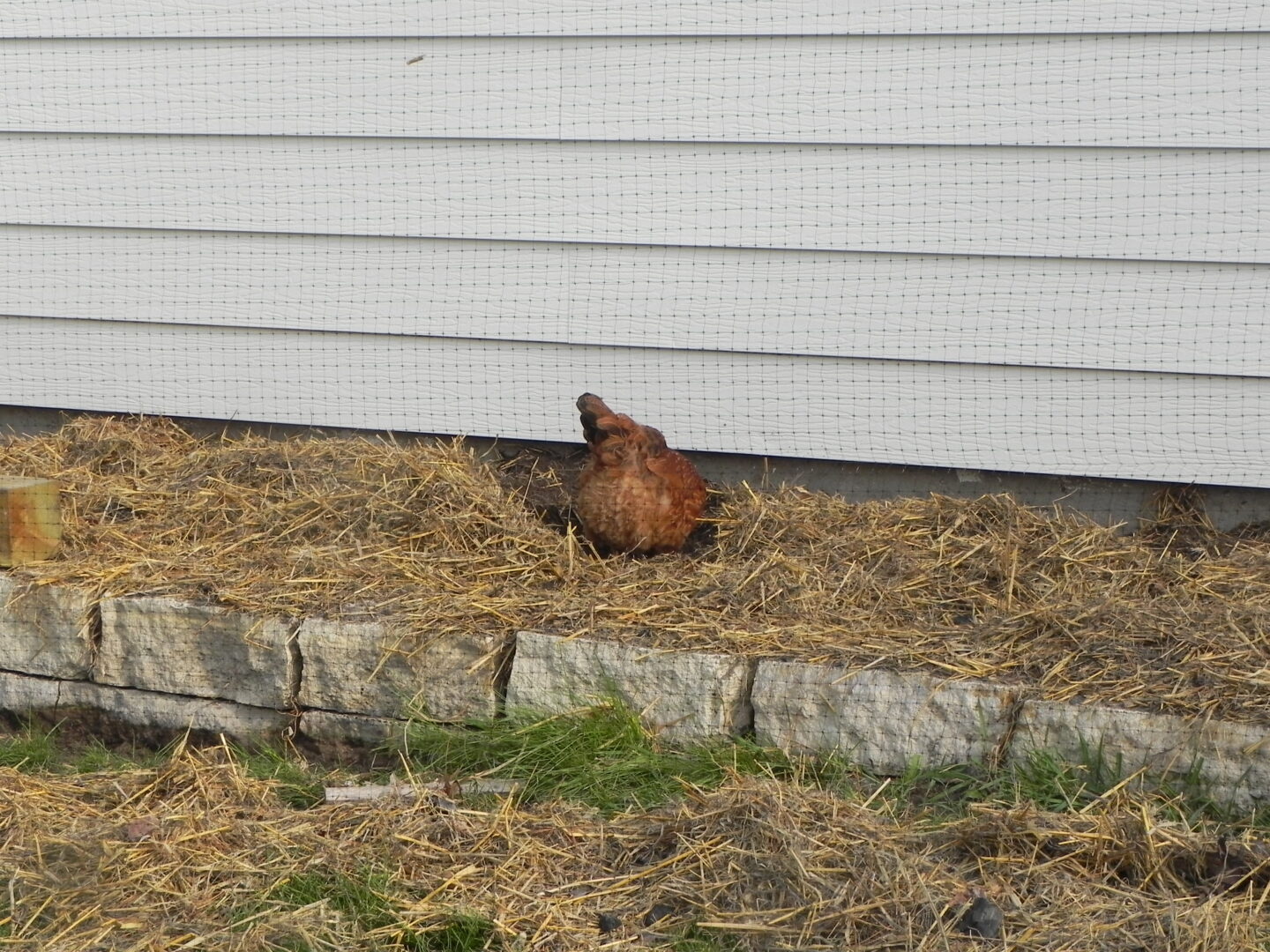The Importance of Grit for Chickens

There’s an advantage to not having teeth. Chickens never need to visit a dentist! But they have a dilemma.
Chickens happily dine on pieces of food as hard as a stone. Somehow it must be moistened and masticated before the digestive tract can extract nutrients. Mammals have teeth to get the job done. Birds use a different strategy. Small stones, called grit, are their surrogate teeth.
Chickens fortunate enough to have daily access to an outdoor run occasionally swallow pebbles that go down the throat and end up in the gizzard, a hollow circular organ about the size of a golf ball. Grit ends up in the gizzard’s interior. As food enters the gizzard, its’ powerful muscles contract, grinding the food into pieces between the stones. Those tiny
particles then can be digested as they move through the bird’s interior.
Grit gradually wears down in the gizzard, so birds need to occasionally swallow new stones. Chickens confined to a coop where they have no access to the ground are unable to locate natural grit and so, rely on their owners to supply it.
Bags of grit are usually sold in the feed aisle. Look for the NatureWise 7-pound bag. It will be enough for a small flock for several months. It is a combination of fine and medium particles of granite, so is edible by both small and larger breeds of chickens.
A handful can be tossed onto the litter once in a while, or it can be placed in a small bowl where birds can access it. Heavy pottery bowls sold as dog dishes work perfectly because they are not easily turned over. Chickens know when they need grit and will swallow a few stones every now and then. A bowl full will last for weeks.
Chickens that are only fed a commercial pellet probably don’t need grit, but almost every owner of a backyard flock tosses the birds an occasional handful of corn or table scraps. Grit is a chicken’s teeth and to ensure good digestion they need access to it.
A good rule of thumb with both grit and oyster shell is, “if in doubt, put it out.” It is very inexpensive and will assure your flock is able to fully digest the food and other tidbits they are eating.
